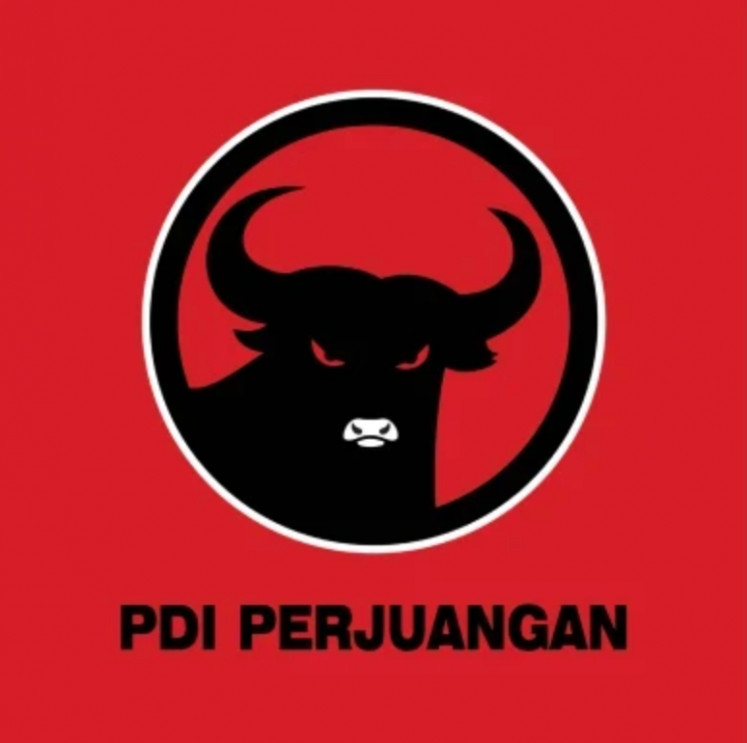
| Chairperson | |
| Secretary-general | |
Notable Figures
|
|
| Number of seats: |
The Indonesian Democratic Party of Struggle (PDI-P) maintains a dominant base in Central Java and Bali, winning the governorships of both provinces at the last election. The party is traditionally stronger in the eastern part of the country, while lagging behind in parts of Sumatra, notably Islam-leaning Aceh and West Sumatra. |
The self-styled party of the wong cilik (ordinary people), the PDI-P hews closely to the principles of founding father Sukarno and the five-point Pancasila ideology he created. The PDI-P has consistently espoused nationalist values and has taken a firm stance against hard-line Islamist groups such as the Islam Defenders Front (FPI).
The PDI-P advocates economic nationalism, in line with Sukarno’s pro-people Marhaenism ideology, which reflects his vision of a society that promotes social justice, economic equality and national self-reliance.
However, the party recently also stood in favor of the Job Creation Law despite opposition from labor unions and workers, who make up the majority of the PDI-P’s electorate.
The Indonesian Democratic Party of Struggle (PDI-P), founded in 1999, traces its origins to the New Order era's Indonesian Democratic Party (PDI), established in 1973.
The PDI itself was a fusion of nationalist parties, including the Indonesian National Party (PNI), which was founded by first president Sukarno.
Megawati Soekarnoputri, the daughter of Sukarno, emerged as a prominent figure within the PDI during the early 1990s and was elected to lead the party in 1993.
However, Soeharto’s New Order regime, which was anti-Sukarno, refused to acknowledge Megawati’s leadership and supported a puppet leader, Suryadi, who had been the party’s chairman since 1986.
In 1996, a violent incident known as the Kudatuli massacre unfolded when Suryadi, with the support of Soeharto, attempted to seize control of the PDI headquarters.
This resulted in the tragic loss of five lives and injuries to hundreds.
Despite losing control of the PDI, Megawati garnered public sympathy, setting the stage for the formation of the PDI-P in 1999, following the fall of the New Order regime.
Reformasi
From 1999 to 2004, the PDI-P capitalized on Megawati's rising popularity to dominate the first democratic legislative election after Suharto's fall, winning 153 of 462 House of Representatives seats.
However, Megawati narrowly missed the presidency, leading to her appointment as vice-president by Abdurrahman Wahid to quell unrest by her supporters.
After Wahid's removal in 2001, Megawati assumed the presidency, though her popularity waned during her tenure.
From 2004 to 2014, PDI-P's momentum slowed, as Susilo Bambang Yudhoyono, who was once Megawati’s most trusted aide in her cabinet, won the presidential election in 2004.
The PDI-P served as the opposition party during this period and faced declining electoral support. In 2009, the party managed to secure only 95 out of 560 seats at the House. It was the first time ever in the party’s history for it to secure fewer than 100 seats at the House.
Jokowi era
In 2014, the party's fortunes changed as Joko "Jokowi" Widodo, a rising political star, became its presidential candidate and won with over 53 percent of the vote. The PDI-P regained dominance in the legislative election, securing 109 out of 560 seats.
However, Jokowi's ascent rankled Megawati, who remained the party's unchallenged leader.
In 2019, the PDI-P won 128 out of 575 legislative seats, while Jokowi secured re-election with 55.5 percent of the vote.
In 2019, criticism arose over the party's support for revising the Corruption Eradication Commission (KPK) Law. This revision was viewed by many as an attempt to weaken the KPK, leading to public condemnation and allegations of corruption involving PDI-P members.
By 2021, internal conflicts within the PDI-P emerged over selecting the party's future leader for the 2024 presidential election. Megawati asserted her authority by declaring her sole discretion in nominating the party's candidate.
Despite controversies, the PDI-P remains a frontrunner in pre-election surveys, aiming to secure a "hat trick" of consecutive electoral victories.
Voted in favor of the following policies:
Capital City Nusantara (IKN) Law
Omnibus Job Creation Law
New and Renewable Energy Law
Revision of the Criminal Code
Revision of the Corruption Eradication Commission (KPK) Law
Sexual Violence Eradication Law
Indigenous Community Law
Convicted high-profile members:
1. Emir Moeis
Emir is a senior PDI-P politician and once held an important role as its treasurer. In 2012, Emir was accused of accepting US$423,985 in bribes from PT Alstom Indonesia, a subsidiary of French-based conglomerate Alstom, related to the construction of a coal-fired power plant in Tarahan, Lampung, in 2004. He was sentenced to three years of imprisonment.
2. Rokhmin Dahuri
In 2007, the Corruption Court sentenced Rokhmin, who was a former maritime affairs and fisheries minister, to seven years in jail and Rp 250 million in fines for abusing his power by illegally collecting Rp 11. 5 billion from regional offices in his ministry. He was released on parole in 2009
Indonesian Democratic Party of Struggle (PDI-P) members’ corruption tally: *
* Information courtesy of BijakMemilih.id